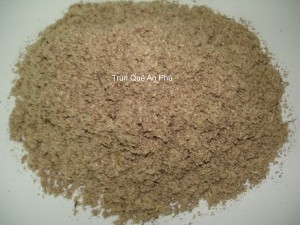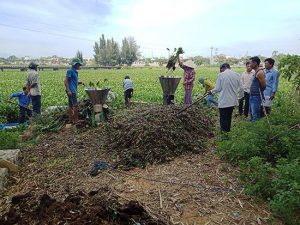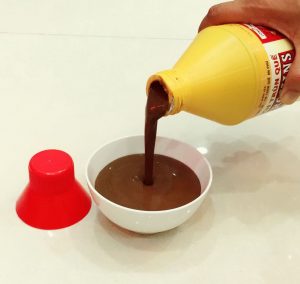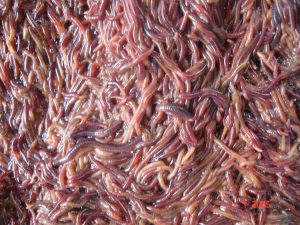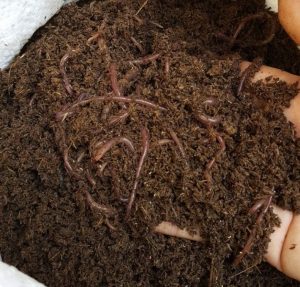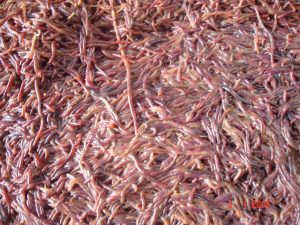How Making worm tea easy from earthworm casting? Do you own a worm bin and wonder what the liquid that forms in the bottom tray is? It is worm tea, sometimes it is also called “vermiwash.” You may not be aware but there are numerous benefits of using worm tea in your soil. Worm tea is a natural fertilizer which is used to promote the growth of plants. If you own a wriggly wranch bin, worm tea forms in the bottom tray that can be drained from the spigot. If you are a gardening enthusiast, you can use worm tea to replenish the soil with nutrients and protect plants from many plant diseases.
Making worm tea from earthworm casting easy?
Worm tea has the same benefits as worm castings, but in liquid form. Castings are produced when worms break down the organic matter in the soil. It is also called “worm manure” or “worm humus.” These castings are present in the worm beds. When you run water through these castings, nutrients such as nitrogen, calcium and magnesium are picked up. The process of harvesting worm castings is called “vermicomposting.”
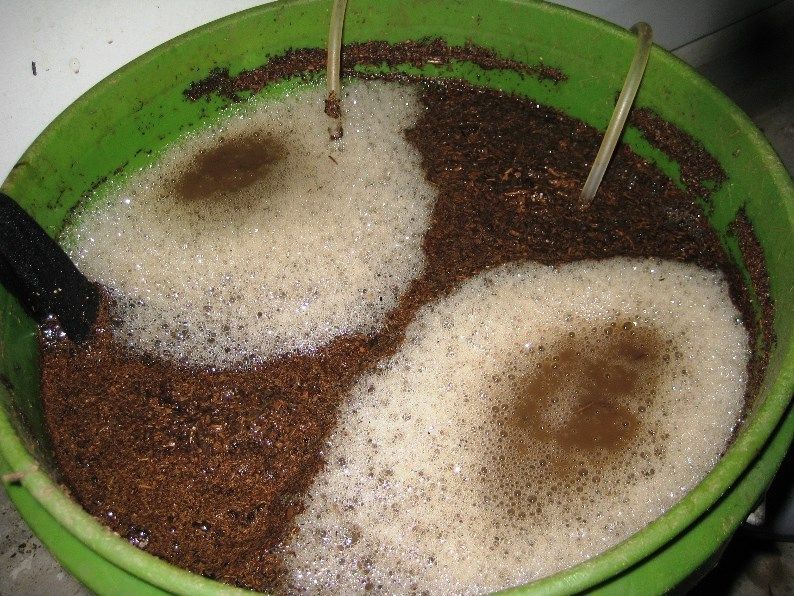
How to make worm tea
How Making worm tea easy from earthworm casting
For making worm tea, you will need a large bin or worm compost bin, such as the Wiggly Wranch bin. The bottom tray should have a drainage spout and holes for aeration. Soak a handful of worm castings in at least 5 liters of warm water.Allow the castings to soak for a couple of days. Next add a teaspoon of molasses (optional). Molasses will promote the growth of micro-organisms.
If you feed your worms a balanced diet such as fruits and vegetables (no meat or dairy) they will produce the best castings and worm tea. The water must be chlorine free because chlorine will destroy the “good” bacteria. To help conserve water, rain water is a good source of unchlorinated water to use. Pete Ash, an experienced gardener, long time master composter, and organic farming and gardening teacher, crafts a tea bag of the compost and vermicompost to soak in water.
He suggests using an aquarium pump to keep the water aerated to stimulate micro-organism growth. Pete says, “The idea is to wash the microbes out of the compost into the water; adding a simple starch or sugar to the brew to feed the bacteria that are breeding. Use the wash water from rice rather then washing it down the drain.”
How to Use Worm Tea
The best way to use worm tea is to dilute it. Pete owns a few Wriggly Wranch bins. He dilutes the worm tea with 4 to 6 parts water (or more) for foliar spray applications. He also recommends using the tea within a couple of days and as it accumulates it may spoil. It is not clear to anyone how long worm tea should brew for, but if it smells bad you should not use it. Pete harvests his castings regularly because the mucus can build up along with bacteria and can actually become toxic for the worms. As Pete says, “No one likes to live in their own feces.”
Benefits of Making worm tea easy from earthworm casting
Worm tea and compost are excellent for a garden. People uses worm tea as a foliar spray and compost tea as a field spray. There are many, many uses for worm tea. Here are a few ways to use worm tea to grow healthy fruits and vegetables:
Use worm tea as an inoculant for potting soil. The nutrients in worm tea help seedlings grow strong. It is suggested that inoculation should be done two weeks before you plant your seedling.
Worm tea also helps recover polluted soil. If you repeat the worm tea applications, the microbes will convert and metabolize organic and inorganic chemicals. The worm tea will help sequester the heavy metals found in chemicals.
Sometimes lawns can become sterile due to chemical treatment. Worm tea will repopulate the soil with microbes, enrich the roots and break down the thatch turning it into food for grass.
During hot summer days, worm tea can help retain water in soil.
If you decide to use worm tea as a foliar spray, it will help your plants produce more foliage and larger stems. This greatly helps plants that are lacking enough sun.
You may also add worm tea to a compost pile to speed-up the break-down process.
By using worm tea, you can help the environment by reducing and even eliminating the use of chemical fertilizers that can cause water pollution. Studies show an average American family produces a ton of waste each year. The estimate is 1/3 or ½ of household waste is organic matter (kitchen waste). So Making worm tea easy from earthworm casting is best.
If you vermicompost, you will reduce the amount of organic matter that ends up in landfills, help mitigate global warming and make nitrogen-rich organic fertilizer and worm tea for yourself. Vermicomposting is nature’s way of completing the recycling loop. If you are interested in learning about “the circle of life…the circle of rot” please refer to our March 2003 newsletter for a discussion of why you should compost, how this is improves healthy soil, which in turn creates healthy vibrant plant life.
Any question about Making worm tea easy from earthworm casting, please fill free to contact us:
Anphu Earthworm Co., Ltd
5/8 Streest No 15, Binh An Ward, Dist 2, Hochiminh City – Vietnam
Tel: 8498.3346179 – Fax: 8428-62810261
Email: wormvns@gmail.com
Zalo: +840983346179

